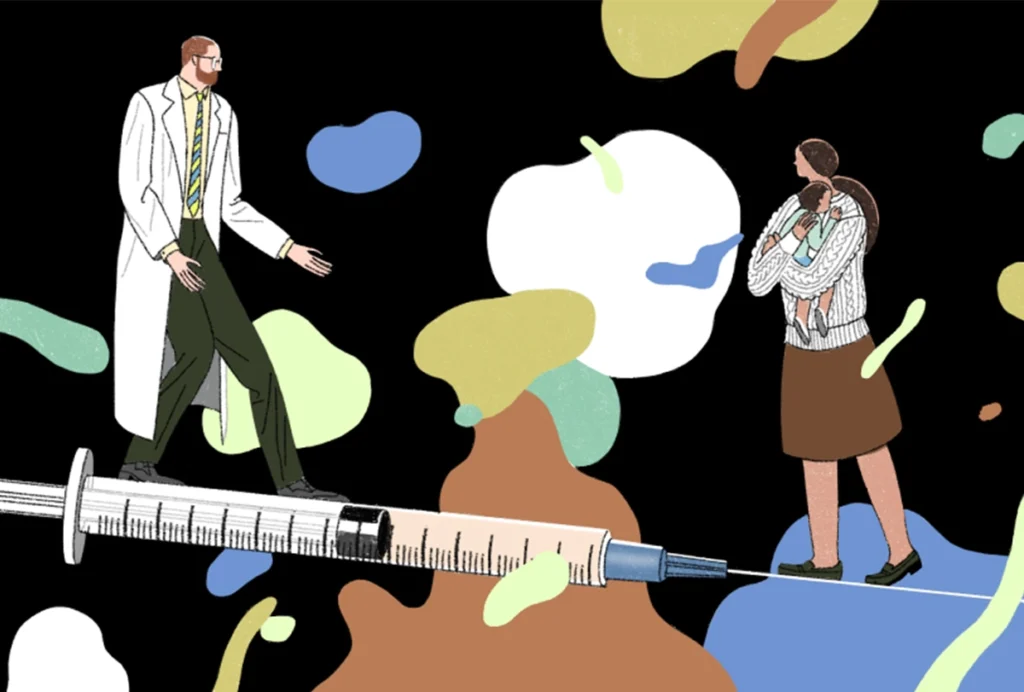Vaccines
Recent articles
Autism scientists push back on CDC’s inaccurate vaccine claims
The CDC website now falsely suggests that autism-vaccine research is still an open question, prompting distrust among researchers—some of whom anticipate “more unreliable statements coming from the junta that took over” the agency.

Autism scientists push back on CDC’s inaccurate vaccine claims
The CDC website now falsely suggests that autism-vaccine research is still an open question, prompting distrust among researchers—some of whom anticipate “more unreliable statements coming from the junta that took over” the agency.
Roundup: The false association between vaccines and autism
In light of Robert F. Kennedy Jr.’s U.S. Senate confirmation hearings this week, The Transmitter has rounded up our past coverage of the false association between vaccines and autism.

Roundup: The false association between vaccines and autism
In light of Robert F. Kennedy Jr.’s U.S. Senate confirmation hearings this week, The Transmitter has rounded up our past coverage of the false association between vaccines and autism.
Explore more from The Transmitter
Dendrites help neuroscientists see the forest for the trees
Dendritic arbors provide just the right scale to study how individual neurons reciprocally interact with their broader circuitry—and are our best bet to bridge cellular and systems neuroscience.

Dendrites help neuroscientists see the forest for the trees
Dendritic arbors provide just the right scale to study how individual neurons reciprocally interact with their broader circuitry—and are our best bet to bridge cellular and systems neuroscience.
Two primate centers drop ‘primate’ from their name
The Washington and Tulane National Biomedical Research Centers—formerly called National Primate Research Centers—say they made the change to better reflect the breadth of research performed at the centers.

Two primate centers drop ‘primate’ from their name
The Washington and Tulane National Biomedical Research Centers—formerly called National Primate Research Centers—say they made the change to better reflect the breadth of research performed at the centers.
Post-infection immune conflict alters fetal development in some male mice
The immune conflict between dam and fetus could help explain sex differences in neurodevelopmental conditions.

Post-infection immune conflict alters fetal development in some male mice
The immune conflict between dam and fetus could help explain sex differences in neurodevelopmental conditions.